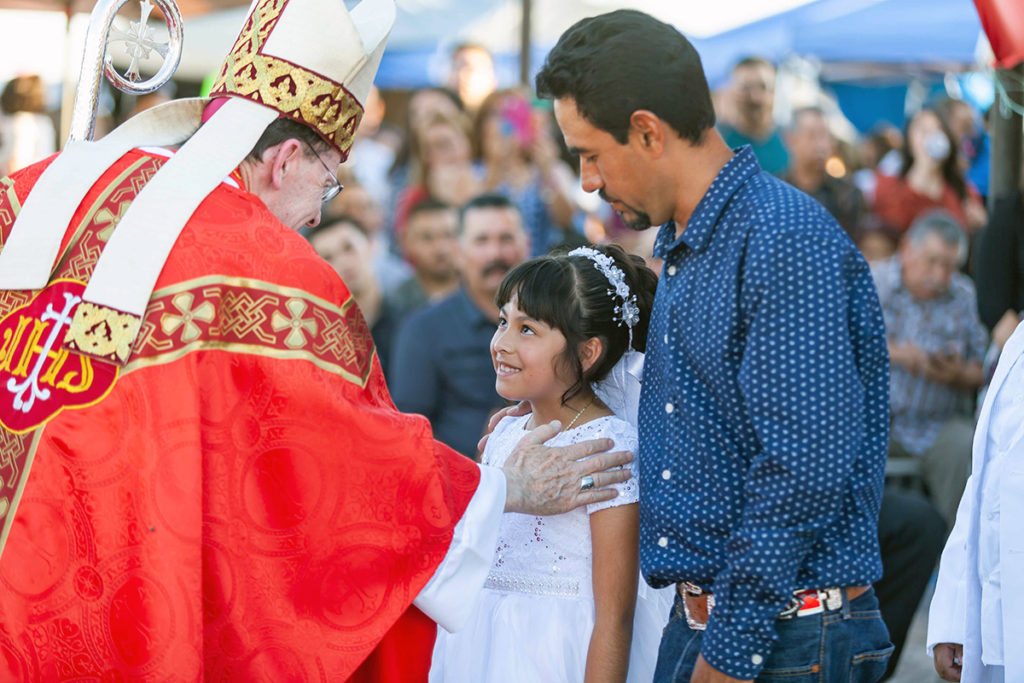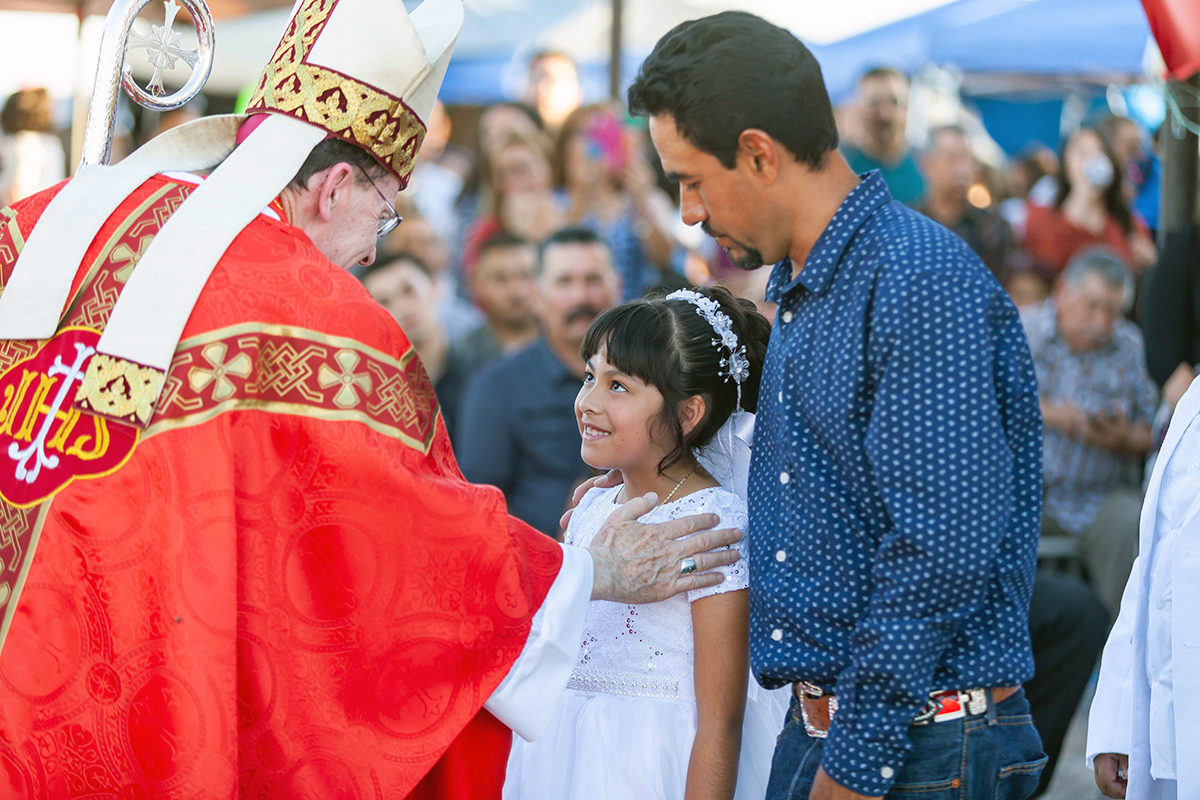
By Mike Nelson
Catholic News Service
In the Catholic tradition, to be confirmed is to be chosen — chosen by God to be a sign of His presence in the world.
“Be sealed with the gift of the Holy Spirit,” declares the bishop (or, sometimes, a priest) who ministers the sacrament, as he traces the sign of the cross — a sign of consecration — with the sacred chrism oil — representing health and strength — on the recipient’s forehead.
With this action, the newly confirmed “shares more completely in the mission of Jesus Christ and the fullness of the Holy Spirit with which he is filled,” so that his life may emanate “the aroma of Christ,” reads the Catechism of the Catholic Church (1294).
Scripturally, we find numerous instances where one has been anointed (or chosen) with holy oil: God instructs Moses in the consecration of priests, in this case Moses’ brother Aaron, “Take the anointing oil and pour it on his head, and anoint him” (Ex 29:7).
Perhaps no anointing in the Old Testament is more profound as that of David, youngest son of Jesse, by the prophet Samuel.
“The Lord said: ‘There — anoint him, for this is the one!’ Then Samuel, with the horn of oil in hand, anointed him in the midst of his brothers, and from that day on, the spirit of the Lord rushed upon David” (1 Sm 16:12-13).
That the Lord passed up David’s older brothers before instructing Samuel to anoint David suggests that anointing is not administered randomly, but only to those God chooses to do His work. “You love justice and hate wrongdoing,” declares Psalm 45. “Therefore God, your God, has anointed you with the oil of gladness above your fellow kings.”
Jesus Himself makes known the power and purpose of anointing in one of His first public actions, the teaching and proclamation of Scripture in the synagogues, for which He was well-received — at least, initially.
Then, in His hometown of Nazareth, He quotes Isaiah — “The Spirit of the Lord is upon me, because He has anointed me to bring glad tidings to the poor” — and adds, “Today this Scripture passage is fulfilled in your hearing” (Lk 4:18, 21). The ensuing uproar causes those assembled to drive Him out of the town — a lesson to Jesus’ followers of the risks awaiting the anointed ones who seek to do God’s will.
St. Paul, for one, took that lesson to heart, fearlessly proclaiming the good news despite enduring persecution and punishment throughout his ministry. “The one who gives us security with you in Christ and who anointed us is God,” Paul tells the people of Corinth. “He has also put His seal upon us and given the Spirit in our hearts as a first installment” (2 Cor 1:21-22).
And the Catechism echoes that promise: “This seal of the Holy Spirit marks our total belonging to Christ, our enrollment in His service forever, as well as the promise of divine protection in the great eschatological trial” (CCC 1296).
Food for Thought
During the Rite of Confirmation, before the bishop anoints the individual confirmand with the chrism, he extends his hands over the entire group about to be confirmed and prays for an outpouring of the Holy Spirit and for the seven gifts of the Holy Spirit — wisdom, understanding, counsel, fortitude, knowledge, piety and fear of the Lord.
This action follows the New Testament custom where the apostles laid hands on those about to receive the Holy Spirit.
In Acts 8, Peter and John travel to Samaria to attend to those who had accepted the word of God.
Once there, they “prayed for them, that they might receive the Holy Spirit, for it had not fallen upon any of them; they had only been baptized in the name of the Lord Jesus. Then they laid hands on them and they received the Holy Spirit” (Acts 8:15-17).
Later in Acts, Paul journeys to Ephesus, where he meets disciples of John the Baptist. Paul baptizes them “in the name of the Lord Jesus.” Then he lay his hands on them and “the Holy Spirit came upon them, and they spoke in tongues and prophesied” (Acts 19:1-6).






